CCTV News: To build a new engine for high-quality development, General Secretary Xi Jinping has "numbers" in mind
Source: CCTV News Client
Editor's Note: The original title was "Building a New Engine for High-Quality Development, Xi Jinping Has" Numbers "in His Heart"
On December 8, 2017, General Secretary Xi Jinping emphasized during the second collective study of the Political Bureau of the CPC Central Committee, promoting the implementation of the national big data strategy, accelerating the improvement of digital infrastructure, promoting the integration and open sharing of data resources, ensuring data security, and accelerating construction. Digital China better serves the economic and social development of our country and the improvement of people's lives.
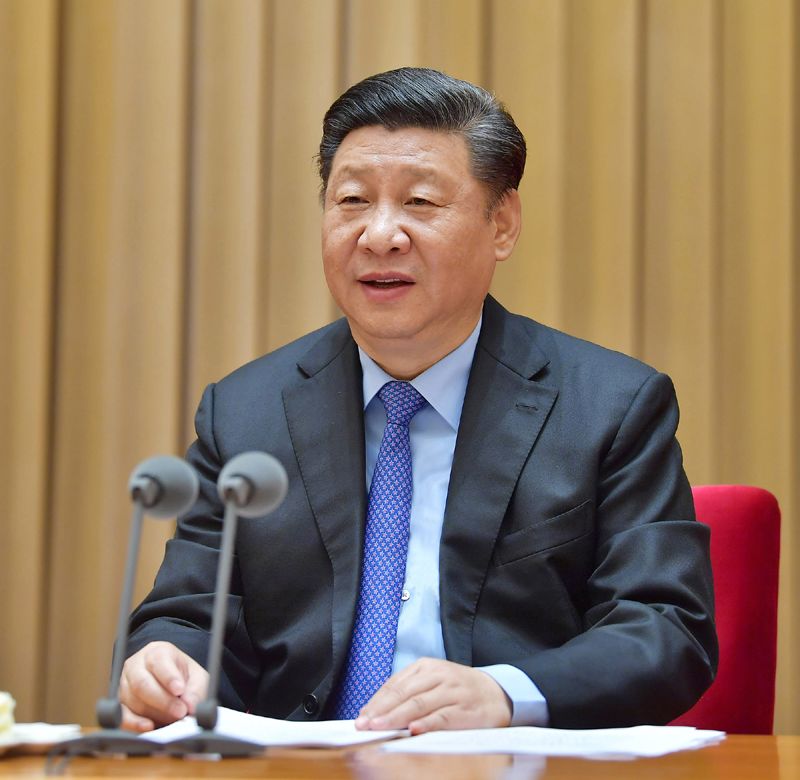
- The technical route of the central bank's digital currency may have been confirmed, and ICBC shoulders the heavy technical burden
- Babbitt College × Weizhong Bank Open Course 丨 Talents become the bottleneck of blockchain landing, multi-field exploration technology integration
- Read the Defi popular project Synthetix in one article
In the past two years, China's information infrastructure has been continuously strengthened, information resources have been deeply integrated, and the development and application of big data have been rapidly promoted. The development of blockchain technology and industrial innovation has broad prospects. The digital economy has become the new engine of China's economy, and the achievements of digital China have been fruitful.
In the face of the global wave of informatization, General Secretary Xi Jinping has a long-term vision and is keen to grasp the historic opportunity of the Chinese nation for a lifetime. He will orient the rudder for the construction of digital China and draw a blueprint.

"The development of China's digital economy will enter the fast lane." On December 3, 2017, Xi Jinping made a clear judgment in his congratulatory letter to the Fourth World Internet Conference.
On April 20, 2018, General Secretary Xi Jinping delivered an important speech at the National Cyber Security and Informatization Working Conference, emphasizing that the online information industry represents a new productive force and a new direction of development. It should be a step forward in implementing the new development concept. Focusing on building a modern economic system, achieving high-quality development, accelerating the development of informatization, and driving the overall development of new industrialization, urbanization, and agricultural modernization.
Two days later, Xi Jinping wrote a letter to congratulate the opening of the first Digital China Construction Summit, stressing once again that accelerating the construction of digital China is to adapt to the new historical direction of China's development, fully implement the new development concept, use information to cultivate new kinetic energy, and use new kinetic energy to promote new Development, create new glory with new development.
Led by General Secretary Xi Jinping's series of important speeches, China's digital economy is getting better. Digital industrialization and industrial digitalization are "two-wheel drive". The digital economy and the real economy are deeply integrated to promote high-quality economic development.
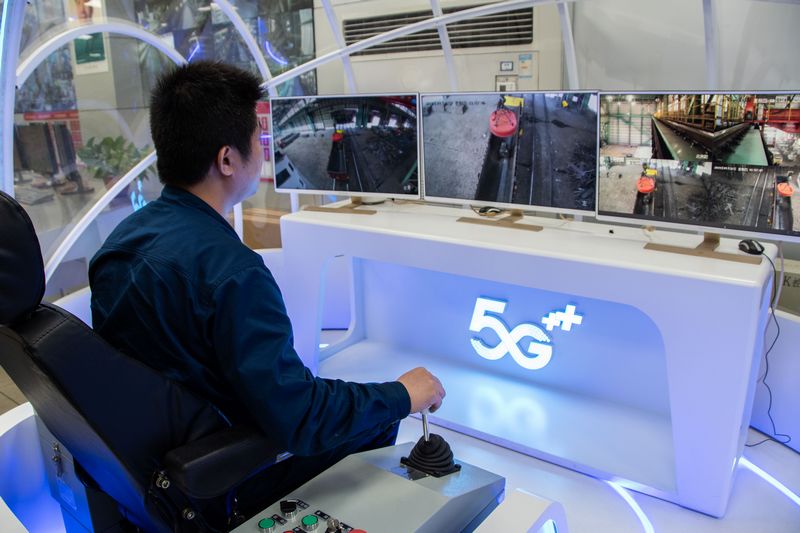
△ On September 12, 2019, a company employee in Hunan was remotely operating scrap steel lifting on the "5G Smart Crane Remote Control Station".
In April this year, the China Academy of Information and Communications Technology released the White Paper on the Development and Employment of China's Digital Economy (2019), which shows that in 2018, China's digital economy reached 31.3 trillion yuan, accounting for 34.8% of GDP. Among them, the scale of digital industrialization reached 6.4 trillion yuan, and the scale of industrial digitalization exceeded 24.9 trillion yuan. On June 6, 2019, China's 5G commercial license was officially issued, and digital infrastructure construction represented by 5G and IPv6 has been steadily progressing.
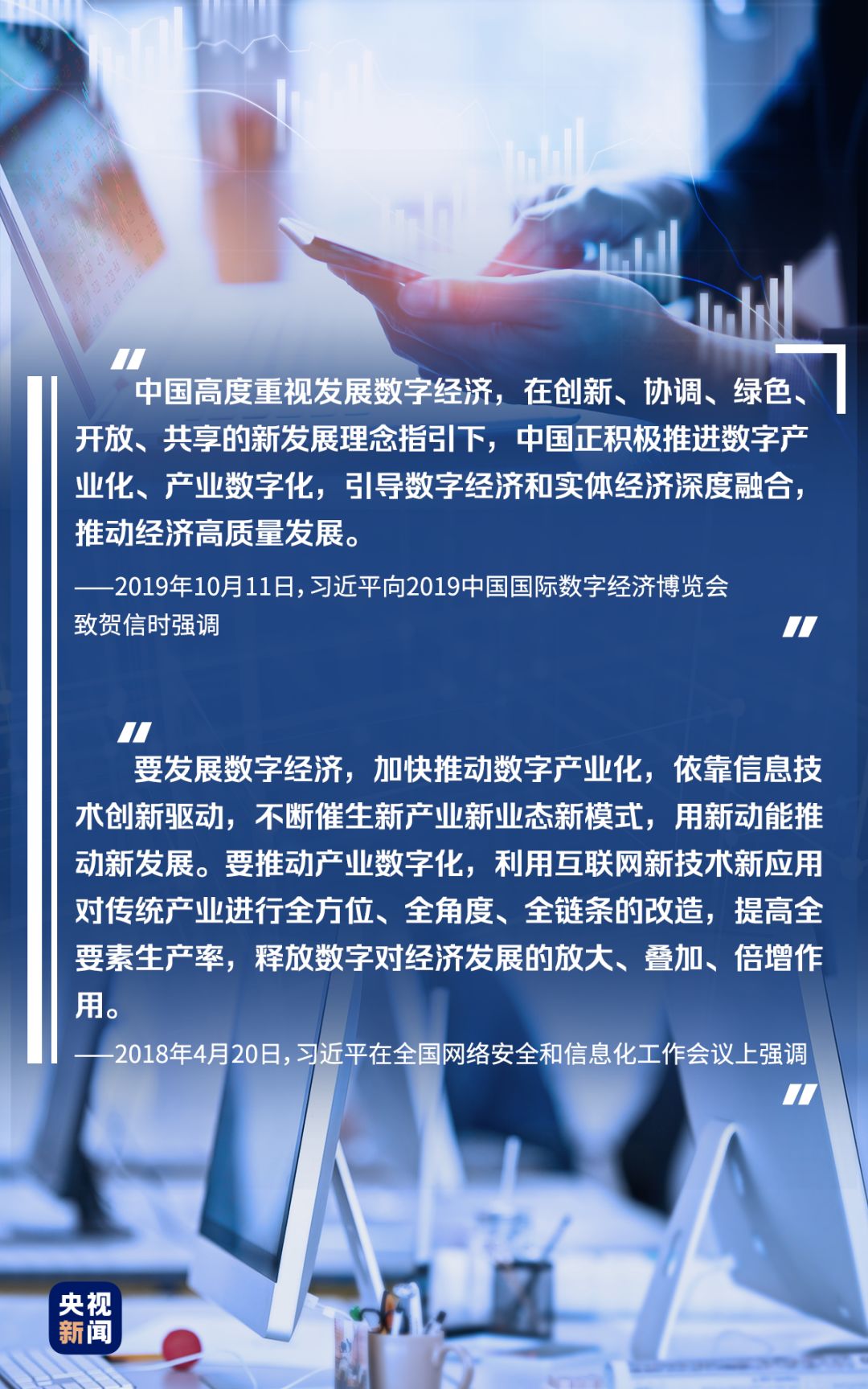

On October 9, 2016, the Political Bureau of the Central Committee of the Communist Party of China conducted the thirty-sixth collective study on the implementation of the strategy of network power, and General Secretary Xi Jinping presided over the study and delivered an important speech stressing that we must deeply understand the role of the Internet in national management and social governance. Taking the promotion of e-government, the construction of new smart cities as the starting point, and the method of data concentration and sharing, the construction of a nationally integrated national big data center, the promotion of technology integration, business integration, data fusion, to achieve cross-level, cross-region, Collaborative management and services across systems, departments, and businesses.
Let the people run less, let the data run more. Relying on the flat, interactive, and fast advantages of the Internet, we have vigorously promoted scientific government decisions, precise social governance, and efficient public services across the country. "Internet + government services" have made breakthrough progress and integrated online and offline The government service system has been promoted steadily, and measures such as "run at most once", "approval without meeting", and "One Netcom Office" have continuously improved the people's sense of satisfaction and satisfaction.
According to the Digital China Index Report (2019) released by the Tencent Research Institute in May, China's overall digital government administration has steadily improved in 2018, and the digital government index has increased by 32% compared to 2017. The "online" direction continues to deepen.
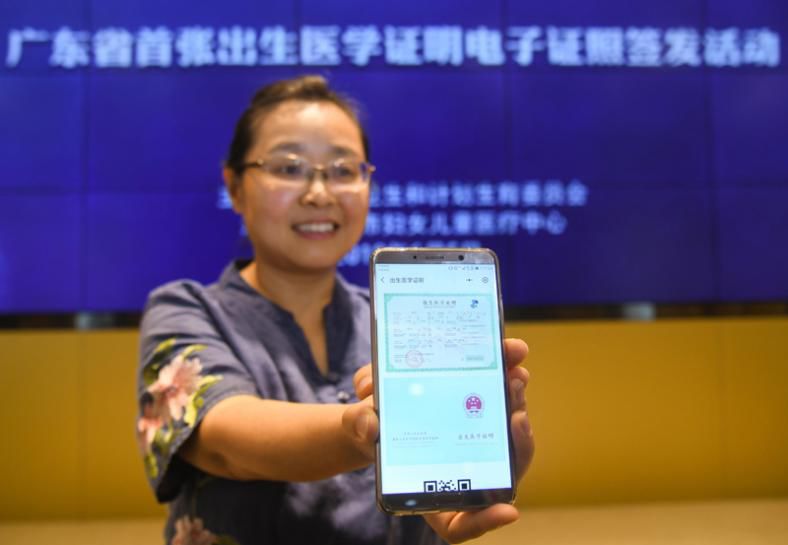
△ On June 5, 2018, at the Guangzhou Women and Children's Medical Center, the citizen Yin Caixin showed the electronic certificate of his son's birth medical certificate. This is the first electronic medical certificate for birth medical certificate in Guangdong Province.
How to break the silos of data, break through the administrative barriers between departments, realize the sharing of government information resources and business collaboration, and realize smart government affairs? Blockchain technology offers new possibilities.
On October 24, when Xi Jinping hosted the eighteenth collective study of the Political Bureau of the Communist Party of China, he emphasized, "We must explore and use the blockchain data sharing model to achieve the cross-department and cross-regional maintenance and utilization of government data, and promote collaborative business processing. We will deepen the 'run once' reform and bring a better government service experience to the people. "
Today, nearly half of the nation's cities have issued new smart city master plans and special plans. According to the "White Paper on Blockchain Enabling Smart Cities (2019)" released by the China Academy of Information and Communications Technology in November, the construction of new smart cities shows the leading position of provincial cities, follow-up of prefecture-level cities, and the start of county-level cities and urban agglomerations. Among them, more than 94% of provincial cities, more than 71% of prefecture-level cities, more than 20% of county-level cities and urban agglomerations have proposed to build smart cities, and a number of urban brains have emerged, "run up to once", and data asset registration , Multi-functional smart poles, extensive public participation, and other distinctive bright applications and models, China has become an important force for the innovation and development of the global smart city technology industry.
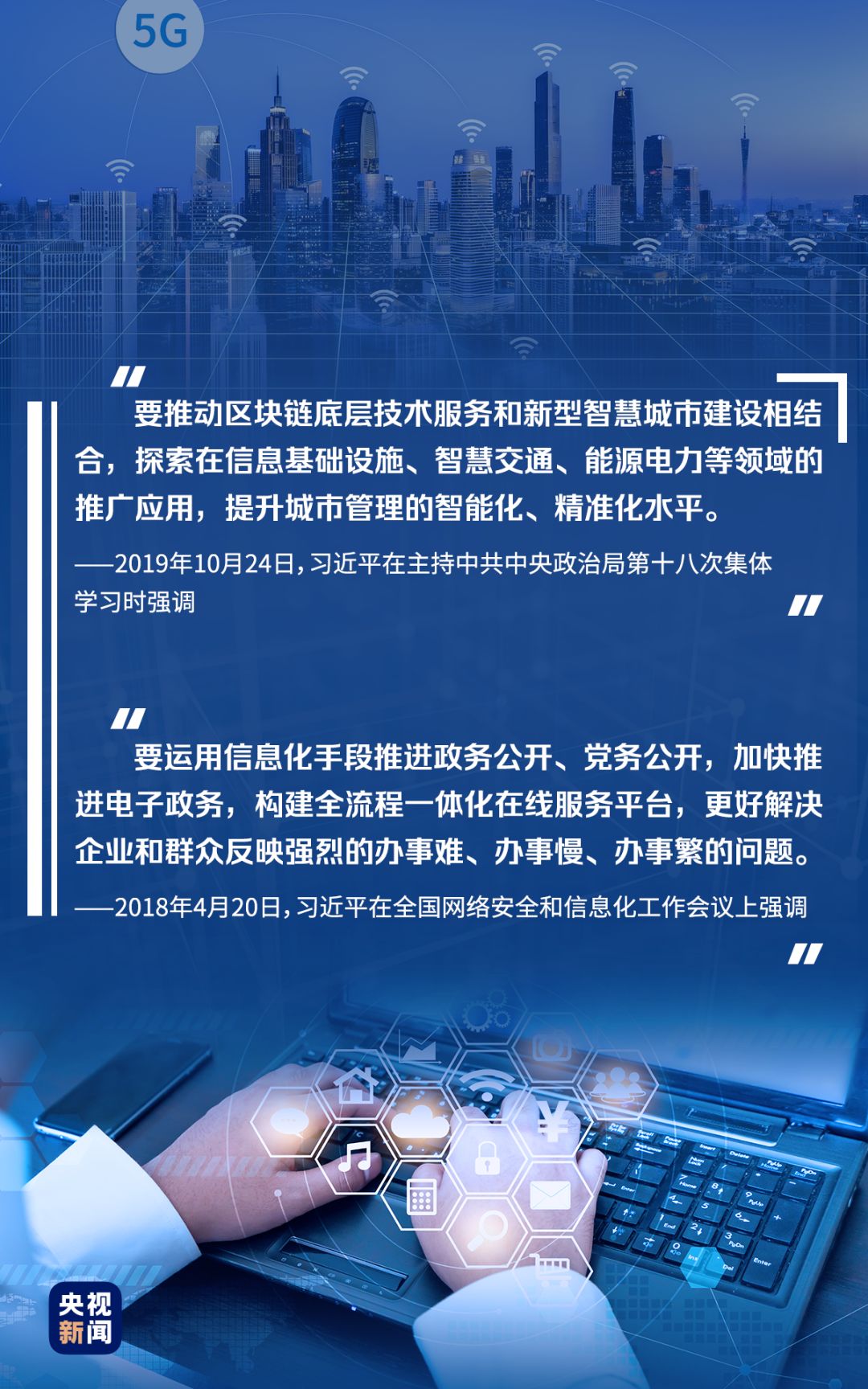

To build digital China, we must implement the people-centered development philosophy.
On April 19, 2016, Xi Jinping delivered an important speech at the workshop on cyber security and informatization, stressing that it is necessary to meet the expectations and needs of the people, accelerate the popularization of informatization services, reduce application costs, and provide ordinary people with affordable and affordable products. 2. Well-used information services give hundreds of millions of people a greater sense of gain in sharing the fruits of Internet development.
On December 8, 2017, when Xi Jinping hosted the second collective study of the Political Bureau of the Central Committee of the Communist Party of China, he emphasized again that big data should be used to promote protection and improve people's livelihood.
In the digital economy, new models and new business models have been born, which has led to the development of ancillary service industries, creating a lot of flexible employment opportunities and greatly expanding employment space. Data show that in 2018, there were 191 million jobs in the digital economy in China, accounting for 24.6% of total employment in that year, a year-on-year increase of 11.5%, which is significantly higher than the growth rate of the total employment in the country during the same period.

△ The staff of Yinong Information Service in Nanfeng County, Jiangxi Province are collecting information on agricultural products (photographed on February 5, 2018).
In the fields of education, health, poverty alleviation, tourism and public safety, the application of big data technology has also achieved many results. Big data such as "government platform", "smart community", "smart tourism", "skynet project", "health care" Application results have provided many conveniences and guarantees for people's daily lives.
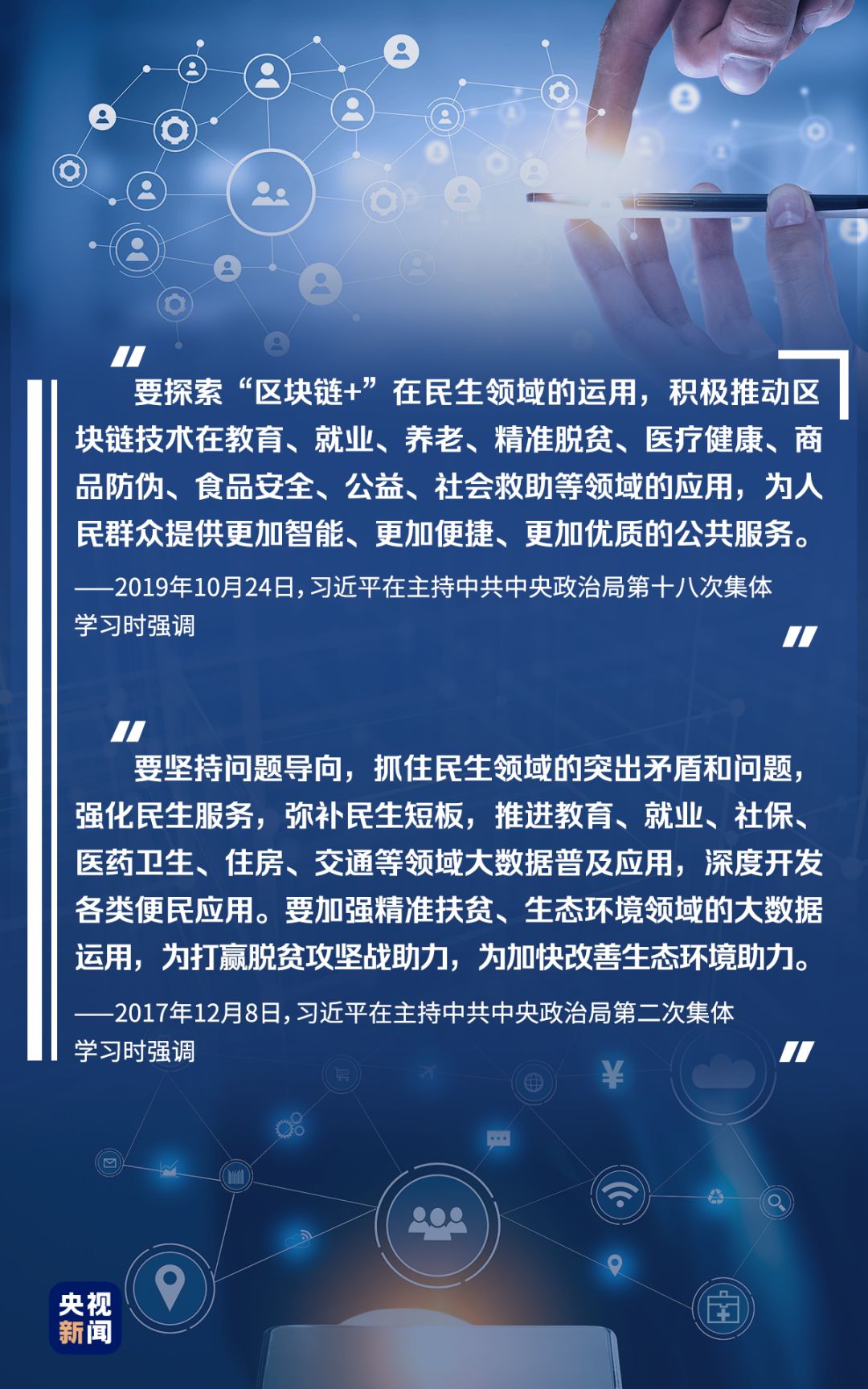
Digital China, the future has come.
In accordance with the grand blueprint drawn by General Secretary Xi Jinping, grasp the historical opportunity of informatization development, comprehensively implement the new development concept, and speed up the pace of digital China construction, we must be mindful of "numbers" and be more energetic.
We will continue to update Blocking; if you have any questions or suggestions, please contact us!
Was this article helpful?
93 out of 132 found this helpful
Related articles
- Babbitt Column | The main driver of the evolution of consensus algorithms: humanity
- Babbitt Observation | Two Districts in Beijing rush to land in "sandbox supervision", more than 100 banks have entered the field
- A scam worth hundreds of millions of dollars: Why did HEX cause public outrage?
- Beijing's "regulation sandbox" experiment is about to begin, and the road to blockchain compliance begins?
- Article predicts five major impacts of secure multiparty computing (MPC) on the blockchain industry in 2020
- Featured | Some secrets about DAO that you can't see at the developer conference
- Opinion | The open source of hardware wallets does not represent a wallet upgrade, but a major security compromise





